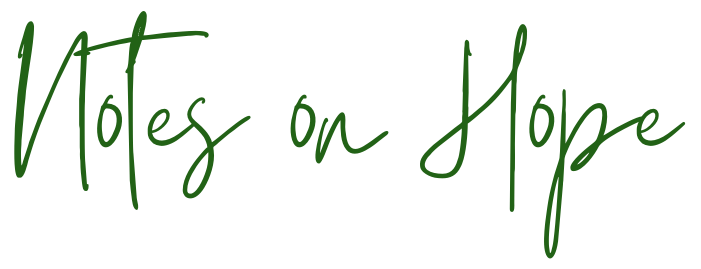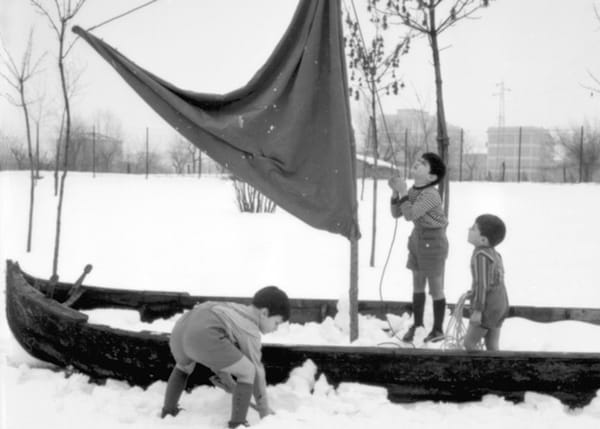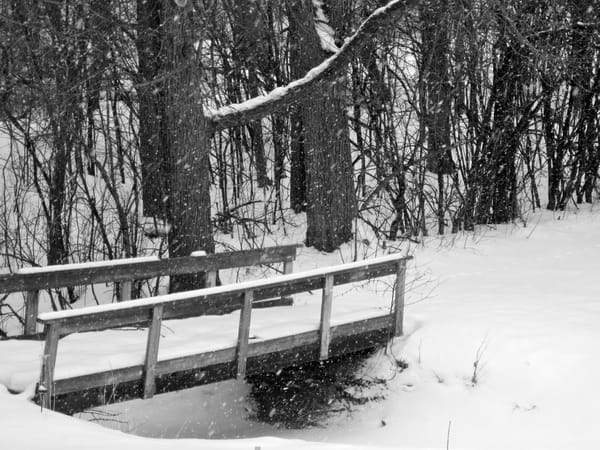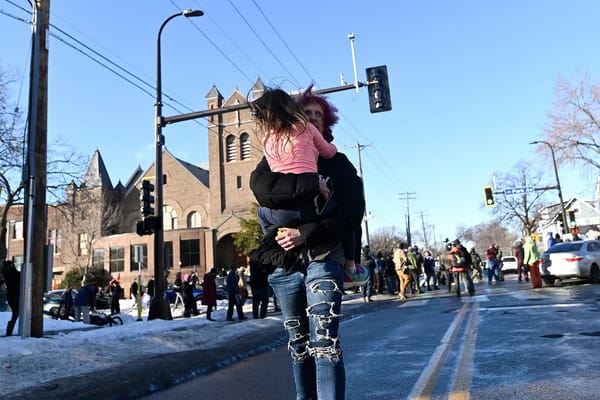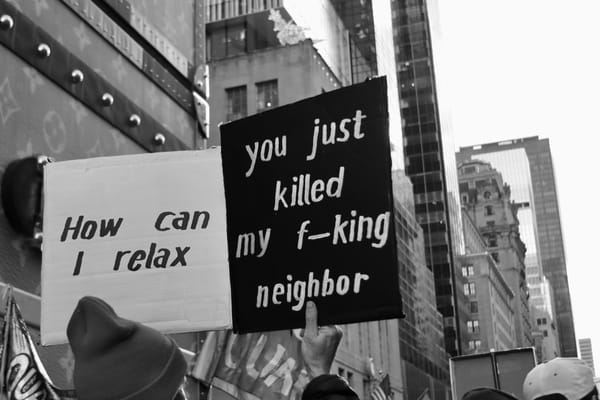The Power of Ordinary Bravery
Lessons from our first and smallest heroes
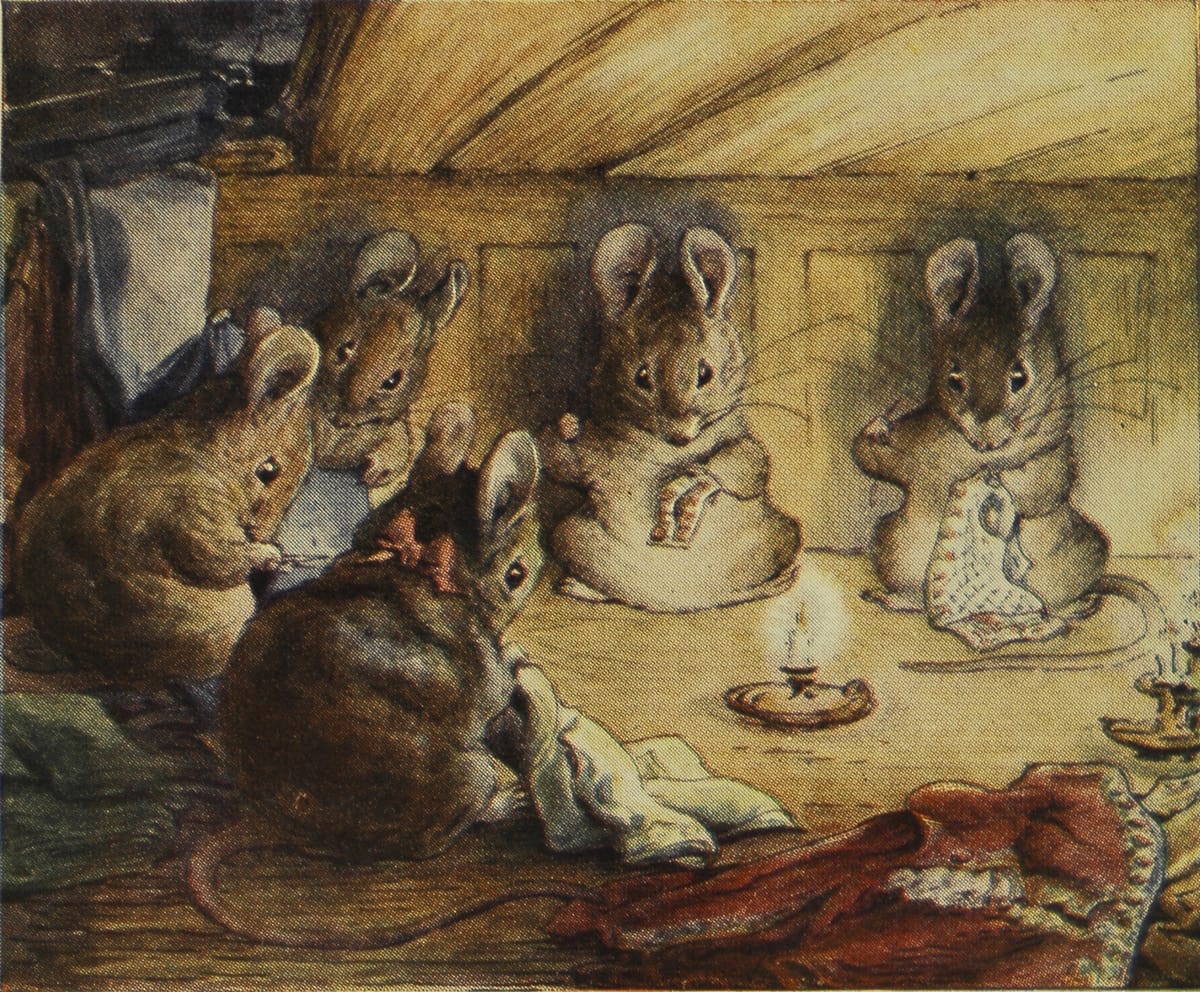
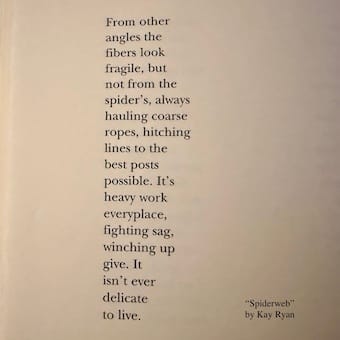
It would be easy, particularly after this past week, to come to the conclusion that we are in the midst of a crisis of courage. Many sources within our cultural landscape teach us that courage is the province of extraordinary leaders. We celebrate those who, throughout history, have wielded their power boldly and transformatively. This is not necessarily misguided; we ought to expect courage from our leaders, if they are worthy of the mantle. It is the most fundamental job of a leader to use the power of their voice and their office to speak on behalf of those who entrust them with that power, those whose voices have less potential to shift tides, who turn their eyes to those on the dais to lift them up and forge the way.
Instead, we are witnessing, on the one hand, daily examples of leadership that uses its authority to crush those with less power. This form of leadership is devoid of courage despite its valorization of strength. It is so fearful of the fragility of its own power that it is driven to squelch even the smallest voices, lest the weakest and most ordinary among us become a threat. On the other hand, we are also seeing those best positioned to oppose these forces abdicating the authority of their offices and hesitating to use their own voice and power to protect those with far less.
All of this is daunting and dispiriting, and it is right to expect that those who have been granted tremendous authority wield it with courage and compassion. But it is also important to remember that the courage we rightly expect from those with the most power and the largest megaphones is not the only form of courage, and, though it often dominates our history books and movie screens, it may not even be the most important form of courage.
Ordinary courage—the brave, often small actions of regular people—are the actions that accumulate and create a groundswell. Though our everyday actions may seem relatively inconsequential when viewed through the lens of our individual lives, they are transformative in ways that singular leaders alone can’t be. Even as we demand that those in power act with more bravery and conviction, it is also essential to take note of the ordinary courage that is occurring all around us. And ordinary courage abounds. The more we attend to it, the more it will serve to rally and reassure our spirits when louder voices may cause us to despair. Noticing ordinary courage in others will also help us find it in ourselves.

The historian, Timothy Snyder, urges individuals to “be as courageous as you can be.” This is the twentieth lesson in his guide to understanding and resisting tyranny. Snyder explains that courage will look different for each of us, and it is not incumbent upon us to be brave in any uniform way. Rather, each of us need only determine where our individual opportunities for courage can be found and assess how much bravery our circumstances allow. He says,
“Sometimes, in our media and our films, we make courage impossible. We make courage something that is carried out by an individual who’s extraordinary, who stands apart from everyone else. We make courage something which happens on the mountaintops. We make courage something that happens in some far away country…In my experience as an historian, I think what we often see is that courage can take small forms. It can take everyday forms. It doesn’t belittle the courage that people show in an uprising or a protest, on a battlefield, to say that it can be very hard to make eye contact. It can be very hard to say that word, which contradicts what everyone else thinks…Courage can take small forms. The important question is whether we choose to be as courageous as we can…Whether it’s in small ways or large, the point is to be as courageous as you can…It has to do with daily life, but like so many of these other lessons, it also has to do with the way things finally turn out.”
While we may be grasping for principled bravery among our leaders, the ordinary courage that Snyder describes is rising up all around us. And, as discouraging as the past week was, both in terms of cruel leadership and leadership that simply lacked courage, it was also a particularly inspiring week for ordinary courage.
We continue to see increasing numbers of regular citizens—farmers, teachers, veterans, parents, grandparents, and students from small towns to cities—showing up to town halls, protests, and hearings to speak up, in some cases defying the typical red/blue political expectations we might have assumed. We saw Jewish students risk arrest and the ire of those within their own communities to speak up for the rights of Mahmoud Khalil. We saw a pregnant wife film the armed, plain-clothed officers in unmarked vehicles, as they handcuffed and drove away with her husband. We saw the staff members at the U.S. Institute of Peace successfully refuse entry to unauthorized agents. We saw scientists and veterans organize large demonstrations. We saw both students and faculty speak out against the actions of their own institutions in protests and public statements. And, as all this ordinary courage was playing out in the United States, we also saw massive demonstrations across Eastern Europe. Even as we wonder at the actions of those in power, whether their fear is leading them to crush even the meekest of opponents or to hide from defending those they’ve sworn to protect, the bravery of ordinary people is evident all around us.
The bravery on display in these examples provides two essential lessons. First, ordinary individuals—the farmer speaking at a town hall or the pregnant mother following federal agents into the street—have a unique resonance, precisely because they are ordinary. They activate our empathy differently and have a particular capacity to mobilize the rest of us, because we can more easily see ourselves in them than in those who have been granted unusual positions of authority. Second, ordinary individuals have a cumulative power that leaders don’t. Even the bravest words from a leader are meaningless without the communal authority that is created by their audience.
Martin Luther King Jr’s speech on the steps of the Lincoln Memorial would not have had the power it did without the 250,000 citizens filling the National Mall, nor the years of smaller protests, boycotts, and civic action that led up to that moment, carried out through consistent, ordinary, everyday acts of bravery. Similarly, the protests and speeches in front of President Wilson’s White House, which led to the passage of the 19th amendment and women’s suffrage, would not have occurred or carried the same power without the individual women whose hunger strike had captured the attention of the media and the public in the years before, or the decades of collective effort prior to that. Ordinary courage is powerful because we see ourselves more easily in those whose lives look like our own, and it is powerful because it carries with it a potential for scale that no single leader ever possesses, regardless of whether their message is one of fear or justice.

Hollywood, the media, novels, and even textbooks often present “courage as something which happens on the mountaintops,” as Snyder says. There are exceptions, but this is a common narrative. As a teacher, though, I know that we also have a wealth of cultural resources at our disposal that consistently tell a different kind of story—stories of ordinary courage emerging from the smallest, most fragile, most meek, and most unlikely sources.
These stories proliferate in children’s literature. And we would all do well to revisit some of the icons of our earliest years, because these, I think, are the models of bravery we most need to inspire us right now.
Most of the bravest characters in children’s literature take the literal shape of the smallest creatures imaginable—a bold mouse, a crafty rabbit, a loyal dog, a clever spider, or a talented cricket. And the reason for this, of course, is that they are meant to inspire confidence, compassion, and courage in children, who are themselves the smallest and least powerful of humans. Children relate to these animal surrogates, because they are familiar. They mirror the child’s own vulnerability and limitations. And yet, again and again, these characters demonstrate to children that the smallest, most overlooked among us is capable of extraordinary actions and can make a difference in our own fate and the lives of those we care about. These tiny characters validate and embolden children, while also anchoring their actions in values of kindness, compassion, and community. In addition to the abundance of small, unlikely heroes, these stories are also filled with collaboration and communal care, as the creatures of the farm or the forest inevitably come together to resist more obviously powerful forces.
I think we could all stand to revisit some of these stories and be reminded of both the courage and the values of the characters our children readily relate to. I suspect many of us would find that, in fact, we adults also have a great deal in common with these small heroes, who are demonstrably fragile, even in their determination and love.
At one point in Kate DiCamillo’s The Tale of Despereaux, the narrator tells us, “Despereaux marveled at his own bravery. He admired his own defiance. And then, reader, he fainted.” Don’t we all have these surges of courage followed immediately by fear at what we’ve done or attempted to do? As Stuart Little prepares to confront a cat, we read, “Stuart was frightened, but he was a brave mouse, even when he had a sore throat. He placed the arrow against the cord of the bow and waited.” The courage displayed by these small creatures is infinitely more relatable than the stories that sell us narratives of extraordinary and often impossible courage. A newer mouse on the children’s literature scene, named simply “Mouse,” in Katherine Applegate and Gennifer Choldenko’s Dogtown series, begins the most recent book by explaining,
“I want to be one of those brave mice you read about in books. A mouse in a friar’s robe brandishing a sword, a mouse in short sleeves paddling a canoe, a mouse in a pullover sweater who saves a princess. But I’m an ordinary field mouse, the size and weight of an average tomato. The only thing I ever wear is slippers.”
Doesn’t this feel familiar to you, even as an adult? Aren't we all, on some level, just ordinary field mice in slippers, hoping to find it within ourselves to be braver than we feel? It should not surprise us to know that Mouse goes on to be quite brave. Nor should it surprise us that his bravery is motivated by his determination to help a friend, or that, in order to accomplish his mission, he relies upon other vulnerable creatures, the dogs known in the story as “the unadoptables.”
These are the themes that weave themselves through the stories we tell our children. They are stories of courage, compassion, collaboration, and kindness. They are stories in which small, ordinary, vulnerable characters take risks and work alongside unlikely allies to protect and care for each other and to make the world gentler and safer.
I believe we, as adults, can likely relate just as readily to many of these stories and characters as our children do. I also think that, even if our actions often belie this, we adults do retain a belief that these values matter. I have to trust that most of us really do care about creating a society in which there is more kindness and less cruelty, more ordinary courage and less feckless power. Because if we didn't believe these things somewhere deep in our hearts, why would we keep telling these stories to our children again and again, over generations?
As we raise children, we are constantly envisioning the future. We imagine both the future identities our children will shape for themselves and the world they will find themselves navigating as they grow. The earliest messages we choose to transmit to our children reflect our hopes, perhaps in their purest form, for what that future might look like. And, over time, we have continued to resoundingly choose to anchor our children in stories of brave and determined kindness and of surprising, collaborative, gentle courage. This must speak to the future we wish for them and the role we hope they will play in creating and nourishing that world. Otherwise, why would we cling to these tales?
If we truly want that world for our children—one that is kinder and more principled—I think we will need to practice living up to the examples of the first protagonists we share with them: the smallest, most ordinary, most loving creatures, who, nonetheless, find ways to be brave and to take care of each other, despite the threats of a big world reflected in their wide eyes and their quivering tails. As these creatures often demonstrate, even the smallest action from the most timid among us can make a difference. If we want our children to believe that these are not merely the fodder of fantasy, and if we want them to one day be kind and brave adults themselves, we have to show them that the world is full of real examples of the same ordinary courage that lives in the pages of their books. And to do this, we have to be able to both notice such courage around us and model it whenever we have the opportunity.
As Snyder notes, the acts that are courageous will be different for each of us and will depend on our circumstances and our vulnerability. But we cannot underestimate the power of many small, meaningful, brave choices.
At the end of Charlotte’s Web, after Wilbur has been saved, we are told,
“Nobody, of the hundreds of people that had visited the Fair, knew that a grey spider had played the most important part of all.”
Our actions may feel small most of the time. They may even seem nearly invisible. But that doesn’t mean they are not impactful, because ultimately it is always the accumulation of ordinary bravery that changes everything.
Be as courageous as you can be,
Alicia
A few resources I found helpful & hopeful this week…
- This man listened, changed his mind, and stuck around to explain why he had changed his mind. Telling our stories matters. Listening matters. Transformation can occur in the most unexpected places.
- The European organization, My Voice My Choice, started a campaign asking women from around the world to write messages of solidarity to American women.
- Incremental change matters, even if it doesn’t feel like it as it is happening.
- This message from journalist, Andrea Pritzker, is stark in some ways, but it is somehow still both pragmatic and helpful.
- Finally, in keeping with the message of small, brave creatures, take heart in this very determined hamster. Don’t give up!
If you think someone else in your life might need some hope, please share. It’s always easier to hold onto hope when we’re not doing it alone.
